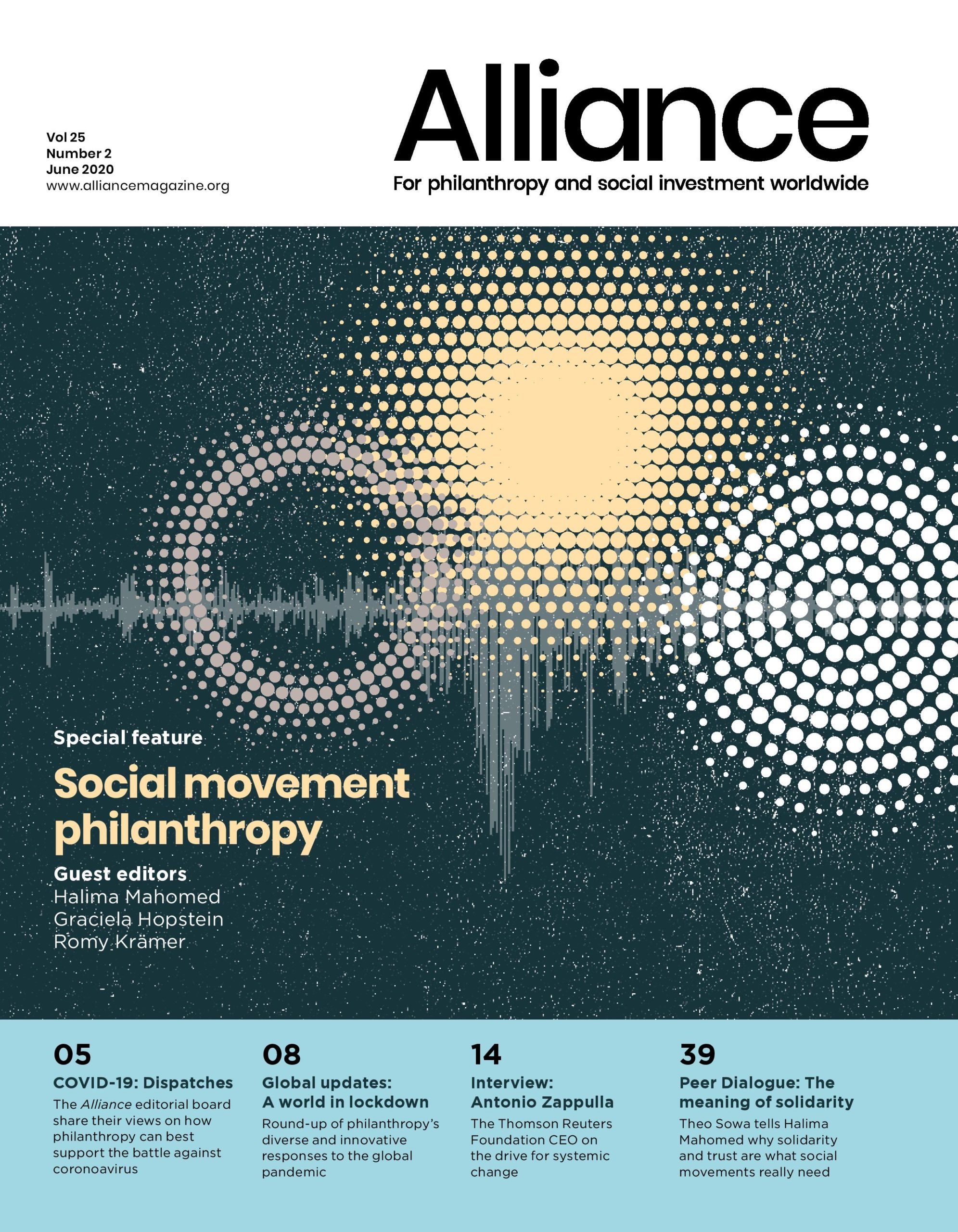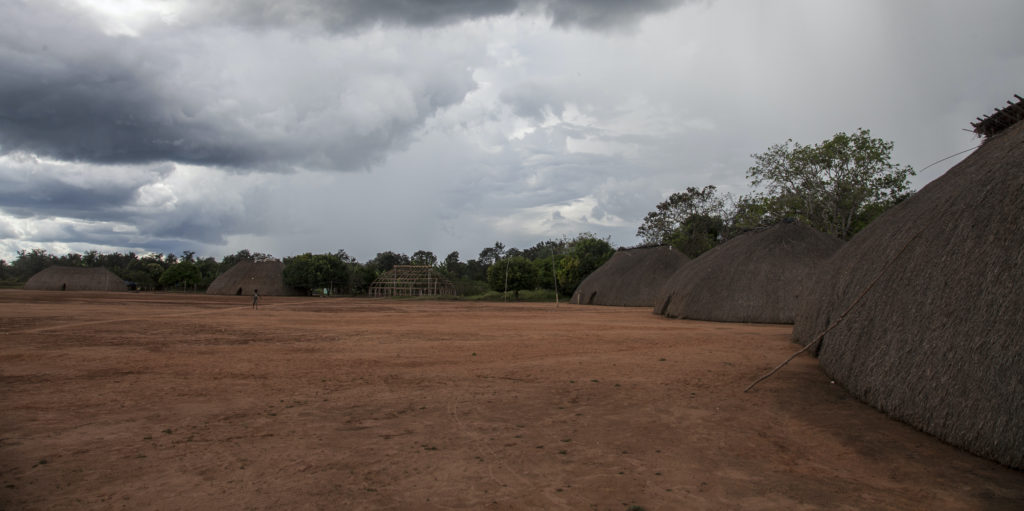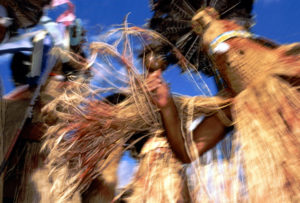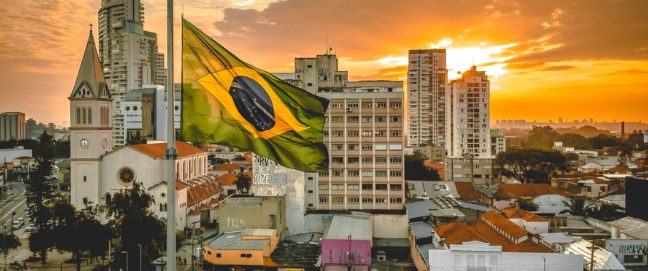A Brazil-based fund is pursuing an approach to funding Indigenous Peoples which is more attuned to their worldview
‘In Brazil… we still rely on foreign help, much like a charity case, which is subordinating and disrespectful of the integrity of the beneficiary.’ These are the words of Ailton Krenak, an Indigenous leader and coordinator of the Núcleo de Cultura Indígena (Indigenous Culture Centre) and council member of the Casa Socio-Environmental Fund, a fund started by activists to fund grassroots environmental defenders, including Indigenous Peoples.
He adds that funding for forest conservation programmes in the 1990s was also subject to the approval of the local government. ‘We fought against this so that we could have a voice, and the funding would go directly to the people, but our efforts were of no avail,’ he says. ‘Now the focus is back on the Amazon and climate control. What is the donor’s true motivation? Are they really concerned about the survival and well-being of those populations?’
A changing world for Indigenous communities
The majority of the 305 Indigenous Peoples recognised in Brazil, even those who manage to live according to their traditions, are highly dependent on actions, technologies and goods from the consumer society: fuel for the vehicles and boats that allow them to move about, solar plates enabling communication, power and drinking water, clothes and utensils. They are surrounded by single-culture farms, pastures, mining activities, roads, hydroelectric power plants, ports and railways, which makes the access to natural foods, traditional medications, clean water – free of mercury and pesticides – hunting and fishing grounds, increasingly difficult. The peoples living in voluntary isolation are even more threatened.
Each Indigenous People, with their own language, traditions and history, has a unique way of existing in the world, of relating to nature and the cosmos.
In the face of this, young people seek qualifications, women assume new responsibilities and communities search for sources of income, education and health that are more compatible with their lifestyle.
Interventions: sometimes comic, sometimes tragic
Projects in Indigenous villages were conceived and developed by governments and institutions with the best intentions, but which never involved those communities themselves. Sometimes the results were comic, other times tragic. A community in the state of Mato Grosso, for example, got money for the cultivation of rice on a stretch of its land. Lots of money was invested, machinery, seeds, specialists employed… When the plantation was ready to be harvested, the Indigenous people refused to do so, explaining: ‘We do not eat rice, but the spotted pacas and tapirs eat it, so they will feed off the rice, get nice and fat, and then we will hunt them.’ This could easily have been avoided by a simple conversation. A ‘failure’ for the people who invested and then blamed the Indigenous Peoples for their inability to take advantage of the opportunity they had been ‘given’.
Dialogue must be the way to find new social and emotional forms to challenge the existing management of the planet, which has resulted only in its depletion, poisoning and death.
When the community itself identifies its needs, procures the resources, and independently and responsibly uses the contributions received, the results are more satisfying, empowering, and provide an actual solution for existing problems.
The work of the fund
That’s why at Casa Socio-Environmental Fund, our mission is to promote the conservation and sustainability of the environment, democracy and social justice, by supporting and strengthening the capacities and initiatives of civil society in South America. In keeping with that mission, we try to direct our contributions in a way that respects the decision-making processes of the communities, including Indigenous Peoples, and reinforces their ways of existing in the world. Between 2013 and 2020, we supported 264 projects for Indigenous communities throughout the Amazon region, in Brazil, Peru, Colombia, Ecuador and Bolivia, with a total investment of $2,380,000.
Each Indigenous People, with their own language, traditions and history, has a unique way of existing in the world, of relating to nature and the cosmos. Dreaming is a determining factor for a number of decisions, so is the knowledge of the elders, the needs of children, the suffering of animals or plants, the moods of the mountains and rivers. All these elements must be considered when conceiving a project, and determining its course and evaluating its results cannot be limited to the numbers, price charts, and budget consolidation. This unique worldview must be understood and respected by any individual or institution who wants to support traditional peoples. Dialogue, the ‘community gathering around the fire’ must be the way, through learning, flexibility, creativity and audacity to find new social and emotional forms to challenge the existing management of the planet, which has resulted only in its depletion, poisoning and death.
Through their traditional way of life, the native peoples offer a harmonious, respectful relationship with the web of life. Perhaps we might truly be able to come closer to those peoples by taking a step in the opposite direction to the colonial approach adopted to date, and instead contributing resources, investments and new technologies and offering partnerships that reinforce their way of being in the world, which we are now learning through our current global crisis, is the ‘only’ way.
This article was translated from Portuguese exclusively for Alliance by Jorge Davidson.
Please see our March 2020 issue on Indigenous philanthropy for more on the topic.
Maíra P. Lacerda Krenak is coordinator of the Amazon Programme, Casa Socio-Environmental Fund.
Email: maira@casa.org.br
Inimá P. Lacerda Krenak is coordinator of the Indigenous Peoples Programme, Casa Socio-Environmental Fund.
Email: inima@casa.org.br








Comments (0)